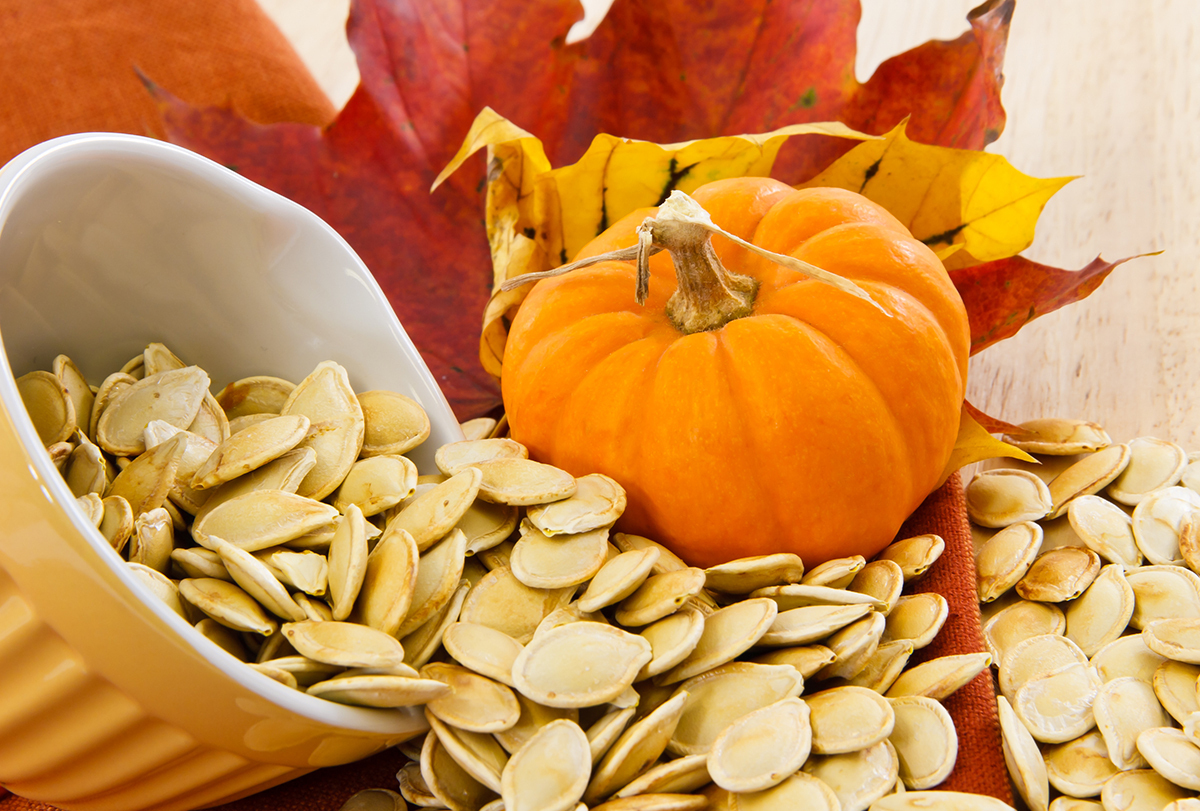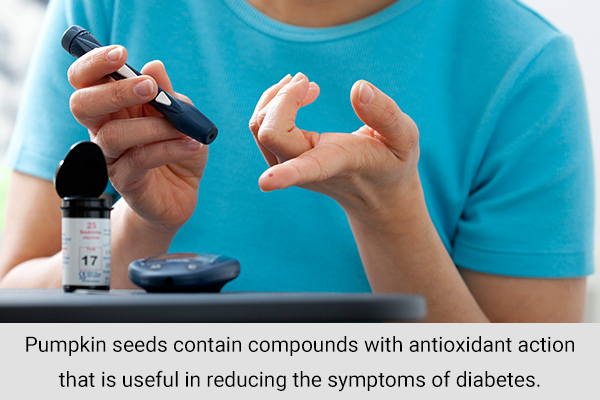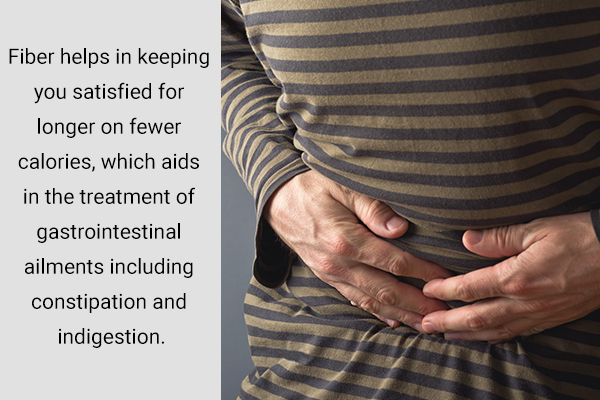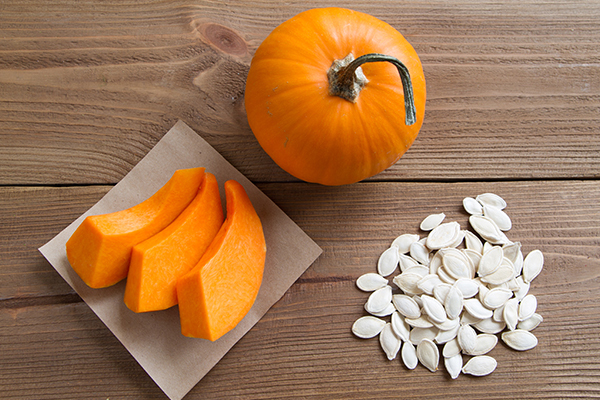In this article:
Pumpkin is a large, wholesome orange vegetable that is packed with nutrients. It can be eaten roasted or steamed in both sweet and savory preparations. Despite being high in vitamins and minerals, it has few calories.

Pumpkin has a variety of food uses depending on its maturity stage, including confectionery items, alcohol, sweets, candies, and fermented beverages. The immature fruit is used as a vegetable.
Health Advantages of Consuming Pumpkin
Here are the top health advantages of eating pumpkin.
1. Improves eyesight
Pumpkin is rich in vitamin A, a nutrient essential for vision and growth. (1) A lack of this vitamin in your diet can result in blindness and childhood deaths. (2)
Vitamin A also works as an antioxidant and lowers the risk of certain diseases including cardiovascular diseases and cancer.
2. Exerts antacid effects
The fibers in pumpkin absorb the excess acids produced by the stomach. Thus consuming fiber, especially through food sources rich in soluble and insoluble fibers such as pumpkin, can help in easing the symptoms of acidity such as a burning sensation in the stomach, headaches, and nausea. (3)
3. Decreases high blood pressure
Pumpkin seeds are rich sources of the mineral magnesium. Magnesium has been proven to have a significant positive impact on reducing the risk of heart attacks and other cardiovascular diseases.
This mineral is very important for maintaining the health of blood vessels and absorbing calcium from the diet into the bones.
Oil extracted from pumpkin seeds has also been shown to reduce high-density cholesterol, an unhealthy form of cholesterol that needs to be lowered so that the risk of cardiovascular events is reduced. (4)
4. Fights diabetes

Pumpkin seeds contain compounds with antioxidant action that is useful in reducing the symptoms of diabetes. Pumpkin fruit is recommended for people with diabetes. (5)
5. Improves hemoglobin levels
The high iron content in pumpkin seeds can help improve iron deficiency anemia. (2)
Pumpkin seeds are also very beneficial for post-menopausal women, women suffering from PCOD/ PCOS, pregnant women, and lactating mothers. (6)
6. Delays the signs of aging
The vitamin A in pumpkin acts as an antioxidant, which has an anti-aging effect and prevents the skin from developing wrinkles.
Moreover, the essential fatty acids found in pumpkin seeds encourage the synthesis of collagen (the building block of skin) and aid in the development of new skin. (7)
7. Provides minerals
Magnesium contributes to the health of teeth and bones. Zinc from pumpkin seeds supports bone density, which aids many functions in the body including cellular function and lowering the chance of osteoporosis (brittle bones). (8)
8. Regulates mood
Pumpkin plays a crucial part in regulating mood and the sleep cycle by influencing serotonin, which can help in controlling mood swings. (9)
9. Supports gut health

Fiber helps in keeping you satisfied for longer on fewer calories, which aids in the treatment of gastrointestinal ailments including constipation and indigestion. (10)
10. Treats ulcers
The pulp and seeds of pumpkins are suggested to have anti-ulcer properties. (11)
Ulcers in the intestine were traditionally treated with herbal concoctions prepared from pumpkin fruits; more recent efforts have been undertaken to treat ulcers and create new anti-ulcer medications using pumpkins. (11)
How to Include Pumpkin in the Diet
Pumpkin can be incorporated into the diet in various forms. Pumpkin curries are a popular dish, as are gravies, soups, and pasta.
Pumpkin seeds can be consumed as a snack along with dry fruits and other seeds, and pumpkin seed powder can be sprinkled on top of dishes to enhance their nutritional value.
Pumpkin seeds are also used in bakery items to make them appealing to younger children.
Most-Asked Questions About Pumpkin
Is pumpkin safe to be eaten by everyone?
Yes, pumpkin fruit can be eaten by everyone in moderation. However, since it is a mild diuretic, it should not be eaten in excess.
People with pumpkin allergies need to avoid the consumption of the vegetable and its seed. (12)
How frequently can I eat pumpkin?

While pumpkin fruit and seeds can be consumed daily in moderate quantities, care must be taken when consuming processed pumpkin products, since excessive intake can lead to an overconsumption of vitamins and minerals. (13)
Can I eat pumpkin in all seasons?
Yes, pumpkins are safe to consume in all seasons, but care must be taken that fresh pumpkins are used. Pumpkins that have been stored for a long time show changes in their nutrition content. (14)
Final Word
Pumpkins are a great addition to the regular diet since they are easily available, have a good shelf life, and are rich in important nutrients. Moreover, a large variety of recipes can be prepared from pumpkins.
- Was this article helpful?
- YES, THANKS!NOT REALLY


